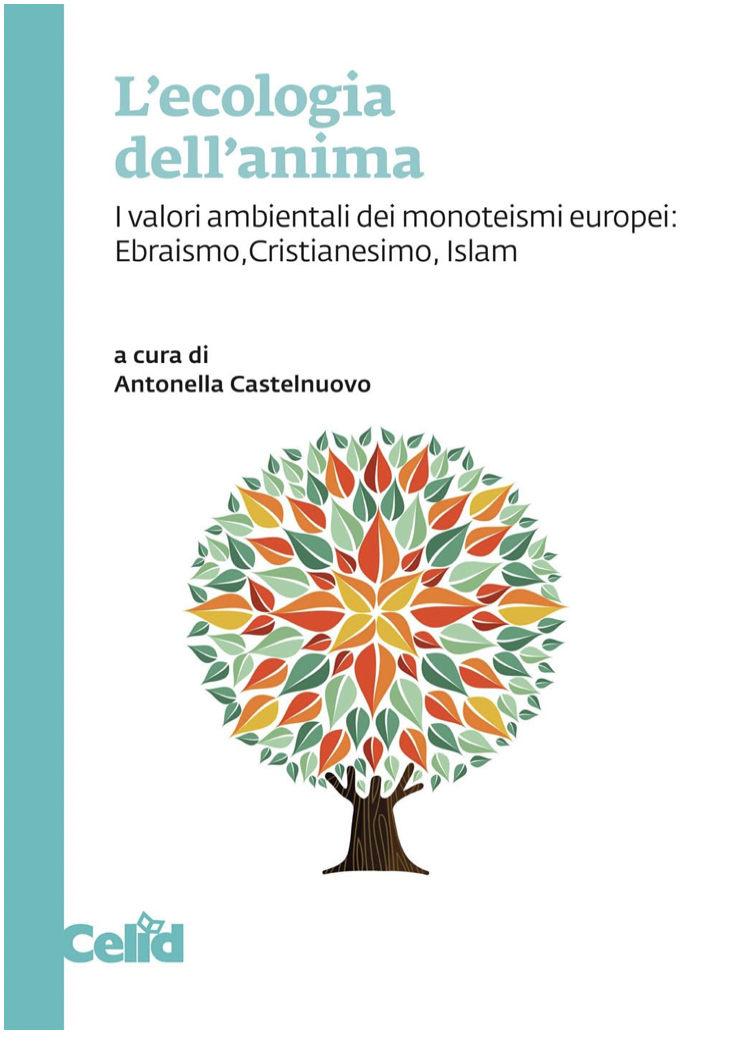BOOKS – Ecology, a “revealed” science
 “Talking about the environment and religions may seem anachronistic in such a secularized era,” says Antonella Castelnuovo, curator of the volume L’ecologia dell’anima. I valori ambientalisti dei monoteismi europei. Ebraismo Cristianesimo e Islam (An ecology of the soul. Environmental values of the European monotheisms. Judaism, Christianity and Islam), published by CELID (240 pages). But it would be a mistake to see it this way, and it is, in fact, a challenge “that every ecologist should face,” says Castelnuovo, former professor of Intercultural Communication and president of the Italy-Israel Association of Siena. Although science has raised several open questions on the subject, it may not have been able to sufficiently mobilize consciences “to obtain the changes necessary for the sustainability of the planet.
“Talking about the environment and religions may seem anachronistic in such a secularized era,” says Antonella Castelnuovo, curator of the volume L’ecologia dell’anima. I valori ambientalisti dei monoteismi europei. Ebraismo Cristianesimo e Islam (An ecology of the soul. Environmental values of the European monotheisms. Judaism, Christianity and Islam), published by CELID (240 pages). But it would be a mistake to see it this way, and it is, in fact, a challenge “that every ecologist should face,” says Castelnuovo, former professor of Intercultural Communication and president of the Italy-Israel Association of Siena. Although science has raised several open questions on the subject, it may not have been able to sufficiently mobilize consciences “to obtain the changes necessary for the sustainability of the planet.
The volume is the result of a conference held in 2022 on the same topic. The first part outlines the major environmental and social issues of our time, treated by experts; the second part analyzes the environmental views peculiar to monotheisms. Starting with Judaism, where environmental issues are present “right from the very first chapters of the Torah.”
These are the first seeds of what Castelnuovo defines as “a systemic interaction” between human beings and the earth, an interaction in which “the presence of one is only valuable because of the existence of the other, and above them both is the Lord.” This relationship is dynamic, she explains, and between the two poles, the earth “is a mediation, because if man disobeys the sacred laws, the earth will dry up and then reject them, but on the contrary, if man respects the precepts, the earth will flourish and offer them its fruits.”
The author also recalls the story of Abraham, under whose influence the concept of the earth also became “a promised land, a gift that must be earned and deserved, with rules addressed not only to the individual but to the entire community.” An example of this can also be found in one of the biblical scenes on the eve of the entry into Eretz Israel, when Moses reviews some of the most significant aspects of his people’s life and way of living together. Castelnuovo mentions, among other things, respect for the plant and animal world and the rule of proposing peace before starting a war to minimize damage to the earth.
The book L’ecologia dell’anima has become a training course for university professors and secondary school teachers, approved by the Ministry of Education.
Translated by Chiara Tona and revised by Francesco Gambino, students at the Advanced School for Interpreters and Translators of the University of Trieste, trainees in the newsroom of the Union of the Italian Jewish Communities — Pagine Ebraiche.
